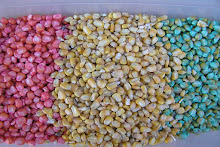As some of you may know, Paulson, formerly the head of Goldman Sachs was named Treasury Secretary this summer.
FuBarrio stupdily bet that gasoline wouldn't go down by as much as it did.
FuBarrio found this posting online. FuBarrio likes to think he was "snookered", rather than just admitting to being stupid. So, this explanation fits his world view of why he lost his ass(ets) on bets that gasoline prices wouldn't tank:
As most of you folks who drive a car are more than aware, over the past six weeks we’ve all been on the receiving end of welcome reprieve in the price of gas at the pumps. In fact, a good many commodity prices have moderated somewhat over the course of the summer. While I “welcome” cheaper gas just as much as the next guy, I also like to get my head around the reason[s] for precipitous price movements – particularly in prices of commodities that have such a profound influence in my life. After all, it’s often said that knowledge is empowering, isn’t it?
Well, if you happen to be a “Commodities Bull” - last week [Thursday, September 21, 2006] the Wall Street Journal ran an inauspicious article in “Section C” titled, Some Investors Lose Their Zest For Commodities. With the article being “buried” in Section C and the fact that the newsy bit received zero TV time – I wouldn’t be at all surprised if you all missed it.
One person who did not “miss it” was Bill King – he of the King Report fame. Not only did Mr. King “not miss it,” he quickly understood the implications of the content of the article, namely that, Goldman Sachs [on July 12] tweaked the composition of their “benchmark” Goldman Sachs Commodity Index [GSCI].
Not A Big Deal, Right? For those of you who might figure a little “tweaking” of an index is not such a big thing, you might want to consider this; “The Pimco fund has a rival in Oppenheimer Real Asset Fund (QRAAX), which doesn’t use commodity swaps and is therefore unaffected by the SEC ruling. It tracks the Goldman Sachs Commodity Index, which is much more volatile than Pimco’s benchmark.” Or this, “It is public knowledge that PGGM and ABP, two of the largest pension funds in the world, are benchmarked to commodities via a passive allocation to the Goldman Sachs Commodity Index, with ABP between 2-4% and PGGM 4%. Since ABP manages $155bn and PGGM $50bn,….” So let’s just say “a little tweak” in the composition of the much watched and followed Goldman Sachs Commodity Index can [and does] have a profound influence on the composition of funds and institutional money that is tracking it.
The Tweak… So here is what Goldman Sachs did to the GSCI, Prior to Goldman's revision of the Goldman Sachs Commodity Index in July, unleaded gas accounted for 8.45% (dollar weighting) of the GSCI. Now unleaded gas is only 2.30%.
So What’s Wrong With This? As Bill King points out, “Goldman's changes probably induced arbs, commercial hedgers, and other traders to sell September and October unleaded gasoline future contracts to avoid possible (settlement, delivery, etc.) problems. September futures expired in August; October contracts expire September 29. So unleaded gasoline prices collapsed in August and September.” I would like to “restate” what Mr. King said: What this means folks, is that hedge funds and institutional money that “TRACKS THE INDEX” were FORCED TO SELL 75% of their gasoline futures to conform with the reconstituted GSCI.
And if anyone hasn’t noticed the timing of the price of the gasoline price collapse…just in time for November’s Mid Term Elections! So don’t be fooled into believing that potential energy shortages have “magically been solved.” In all likelihood – much of the recent decline in the price of gasoline we have all “welcomed” has been the result of paper tricks being played on what amounts to a wealthy flock of sheep. But in the meantime, filler up! Rob Kirby, Sept. 25, 2006
Subscribe to:
Post Comments (Atom)


No comments:
Post a Comment